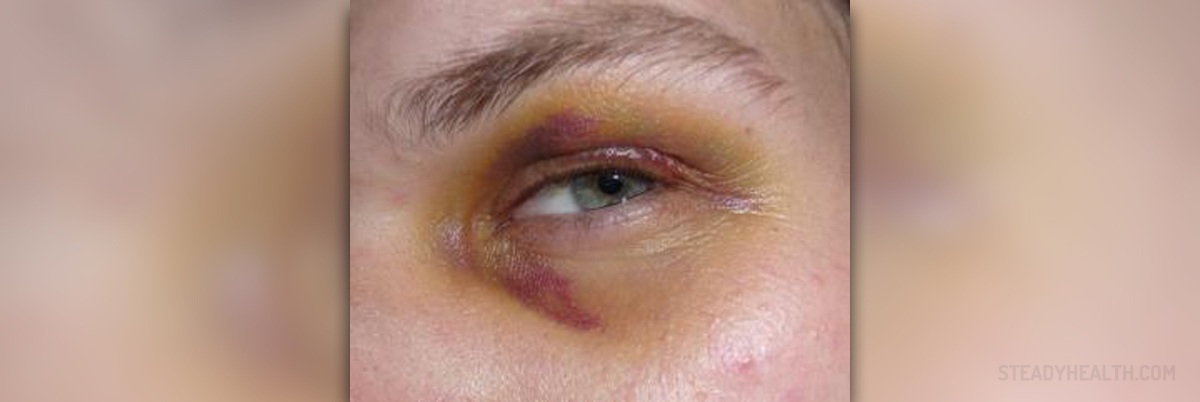
A black eye is a common result of an injury to the face or the head. Despite its name, the eye itself does not change in the color, it is the surrounding skin that turns deep red, purple or even black due to accumulation of blood. it is basically a bruise, and like any other bruise it eventually fades and goes away. In most cases, a black eye does not require medical attention.
What causes a black eye
The skin around the eyes is thin, loose and mostly with fat underneath it. This is why when the area suffers an injury, the blood and other fluids easily accumulate and form a bruise.
Receiving a blow to the nose often leads to a black eye. This happens because the swelling in the nasal area causes fluids to collect underneath the eyelids. Depending on the blow, one or both eyes can be bruised.
A black eye can be caused by a surgery performed on the face or the head, like a face lift, a jaw or a nose surgery.
Basilar scull fracture, which is a type of head injury, often causes so called “raccoon’s eyes”, because both eyes swell and blacken.
Symptoms of black eye
A black eye usually starts with mild discoloration. The skin around the eyes first turns red and then darkens. Swelling also progresses, as does the discoloration, until the skin is dark purple, green yellow, brown or black. Over the course of few days, the swelling starts to subside and the color gradually turns back to normal. Normally, a black eye does not cause significant vision problems. However, if there are problems like double vision, blurriness, inability to move the eye, loss of sight, constant headache and bleeding from the nose or the ears, the injury should be checked by a doctor.
Treatment for black eye
The most widely used way to treat a black eye is to apply ice packs or a bag of frozen peas, but it is important to wrap them in a cloth to prevent cold injury. Ice helps by contracting the blood vessels, and as a result the swelling subsides and the fluid accumulation is decreased.
It is recommended to rest and avoid any activity that might cause further damage to the eye. Applying a steak or other raw meat is not recommended because it has never been proven effective and the meat may contain bacteria that cause infections.
Over the-counter pain killers may be taken to relieve the pain, however Aspirin should be avoided, because it increases bleeding.
If the black eye does not subside within a few days, it is best to see a doctor. Every head injury or trauma can lead to serious complications so a general practitioner may want to send the patient to a specialist- a neurosurgeon, an ophthalmologist, an otorhinolaryngologist or a plastic surgeon.




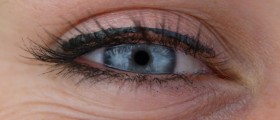








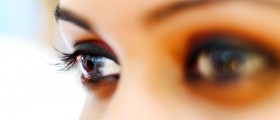
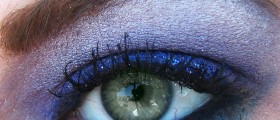
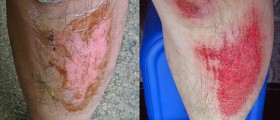
Your thoughts on this
Loading...